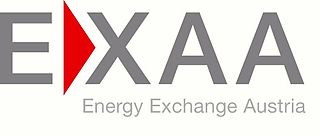This article needs additional citations for verification .(December 2018) |

Neas Energy (NEAS) is an energy trading and management company. The company deals in electricity, gas, and certificates in the European energy markets.
This article needs additional citations for verification .(December 2018) |

Neas Energy (NEAS) is an energy trading and management company. The company deals in electricity, gas, and certificates in the European energy markets.
Neas Energy [1] was established in 1998 by four Danish energy supply companies; Aalborg Municipality's Electricity Supply Company: AKE Net, Nyfors Entreprise A/S, Frederikshavn Forsyning A/S, and Thy-Mors Energi Holding A/S. The company has since established an organization with expert capabilities in trading, risk management, and market management for both producers and consumers of energy, and engages in energy trading, energy production management, and portfolio management.
Neas Energy was fully acquired by British energy group Centrica plc. in 2016.
The New Zealand electricity market (NZEM) is a decentralised electricity market regulated by the Electricity Industry Participation Code administered by the Electricity Authority (EA). The authority was established in November 2010 to replace the Electricity Commission.
In a broad sense, an electricity market is a system that facilitates the exchange of electricity-related goods and services.
A hedge is an investment position intended to offset potential losses or gains that may be incurred by a companion investment. A hedge can be constructed from many types of financial instruments, including stocks, exchange-traded funds, insurance, forward contracts, swaps, options, gambles, many types of over-the-counter and derivative products, and futures contracts.

The Electricity Supply Board is a state owned electricity company operating in the Republic of Ireland. While historically a monopoly, the ESB now operates as a commercial semi-state concern in a "liberalised" and competitive market. It is a statutory corporation whose members are appointed by the government of Ireland.
The Renewables Obligation (RO) is designed to encourage generation of electricity from eligible renewable sources in the United Kingdom. It was introduced in England and Wales and in a different form in Scotland in April 2002 and in Northern Ireland in April 2005, replacing the Non-Fossil Fuel Obligation which operated from 1990.
The National Electricity Market (NEM) is an arrangement in Australia's electricity sector for the connection of the electricity transmission grids of the eastern and southern Australia states and territories to create a cross-state wholesale electricity market. The Australian Energy Market Commission develops and maintains the Australian National Electricity Rules (NER), which have the force of law in the states and territories participating in NEM. The Rules are enforced by the Australian Energy Regulator. The day-to-day management of NEM is performed by the Australian Energy Market Operator.
Centrica plc is a British multinational energy and services company with its headquarters in Windsor, Berkshire. Its principal activity is the supply of electricity and gas to consumers in the United Kingdom and Ireland.

Wärtsilä Oyj Abp, trading internationally as Wärtsilä Corporation, is a Finnish company which manufactures and services power sources and other equipment in the marine and energy markets. The core products of Wärtsilä include technologies for the energy sector, including gas, multi-fuel, liquid fuel and biofuel power plants and energy storage systems; and technologies for the marine sector, including cruise ships, ferries, fishing vessels, merchant ships, navy ships, special vessels, tugs, yachts and offshore vessels. Ship design capabilities include ferries, tugs, and vessels for the fishing, merchant, offshore and special segments. Services offerings include online services, underwater services, turbocharger services, and also services for the marine, energy, and oil and gas markets. At the end of Dec 2022, the company employed 17,500 workers.
Renewable Energy Certificates (RECs), also known as Green tags, Renewable Energy Credits, Renewable Electricity Certificates, or Tradable Renewable Certificates (TRCs), are tradable, non-tangible energy certificates in the United States that represent proof that 1 megawatt-hour (MWh) of electricity was generated from an eligible renewable energy resource and was fed into the shared system of power lines which transport energy. Solar renewable energy certificates (SRECs) are RECs that are specifically generated by solar energy.
EnergyAustralia is an electricity generation, electricity and gas retailing private company in Australia. It is one of the "big three" retailers in the National Electricity Market. It generates electricity primarily using coal fired generation, at the Yallourn Power Station in Victoria, and the Mount Piper Power Station in New South Wales. 10% of its generation is from wind power, 32% from gas, and 58% from coal. It is Australia's second biggest emitter of greenhouse gases, after AGL Energy. As a loss making company in 2023, its parent in Hong Kong, CLP Group, has stated that it is looking for partners for renewable energy investment, however as of this time, there were no plans to build new renewable energy itself.

A transmission system operator (TSO) is an entity entrusted with transporting energy in the form of natural gas or electrical power on a national or regional level, using fixed infrastructure. The term is defined by the European Commission. The certification procedure for transmission system operators is listed in Article 10 of the Electricity and Gas Directives of 2009.
The National Electricity Market Management Company Limited (NEMMCO) was established in 1996 to administer and manage the Australian National Electricity Market (NEM). It was the market operator for the NEM. The governments of Queensland, New South Wales, the Australian Capital Territory, Victoria, South Australia and Tasmania were members of NEMMCO; and each nominated a director to the NEMMCO board.
A Renewable Portfolio Standard (RPS) is a regulation that requires the increased production of energy from renewable energy sources, such as wind, solar, biomass, and geothermal, which have been adopted in 38 of 50 U.S. states and the District of Columbia. The United States federal RPS is called the Renewable Electricity Standard (RES). Several states have clean energy standards, which also allow for resources that do not produce emissions, such as large hydropower and nuclear power.

The Energy Exchange Austria (EXAA) is a Central European energy exchange headquartered in Vienna. Currently, the EXAA Market encompasses trading areas in the entire of Austria and Germany.

Macquarie Group Limited is an Australian global financial services group. Headquartered and listed in Australia, Macquarie employs more than 20,000 staff in 34 markets, is the world's largest infrastructure asset manager and Australia's top ranked mergers and acquisitions adviser, with more than A$871 billion in assets under management.

Electrica is a private company, listed on the Bucharest and London stock exchanges. Electrica is the only listed Romanian company in the field of electricity distribution and supply in Romania. Electrica Group is a key player in the electricity distribution and supply market in Romania, as well as one of the most important players in the energy services sector.
The Energy Commission, abbreviated ST, was created under the Energy Commission Act 2001 as a new regulator for the energy industry in Peninsular Malaysia and Sabah. The Commission was established to ensure that the energy industry is developed in an efficient manner so that Malaysia is ready to meet the new challenges of globalisation and liberalisation, particularly in the energy supply industry.

Energy in Singapore describes energy related issues in Singapore, which is a developed country located in Southeast Asia. Energy exports to others are about three times the primary energy supplied in the country itself. Additionally, oil imports in relation to the population demands of the country itself are concerningly high.

The electricity sector in the Philippines provides electricity through power generation, transmission, and distribution to many parts of the country. The Philippines is divided into three electrical grids, one each for Luzon, the Visayas and Mindanao. As of June 2016, the total installed capacity in the Philippines was 20,055 megawatts (MW), of which 14,348 MW was on the Luzon grid. As of June, 2016, the all-time peak demand on Luzon was 9,726 MW at 2:00 P.M. on May 2, 2016; on Visayas was 1,878 MW at 2:00 P.M. on May 11, 2016; and on Mindanao was 1,593 MW at 1:35 P.M. on June 8, 2016. However, about 12% of Filipinos have no access to electricity. The Philippines is also one of the countries in the world that has a fully functioning electricity market since 2006 called the Philippine Wholesale Electricity Spot Market(WESM) and is operated by an independent market operator.
A renewable portfolio standard (RPS) is a regulation that requires the increased production of energy from renewable energy sources, such as wind, solar, biomass, and geothermal. Other common names for the same concept include Renewable Electricity Standard (RES) at the United States federal level and Renewables Obligation in the UK.